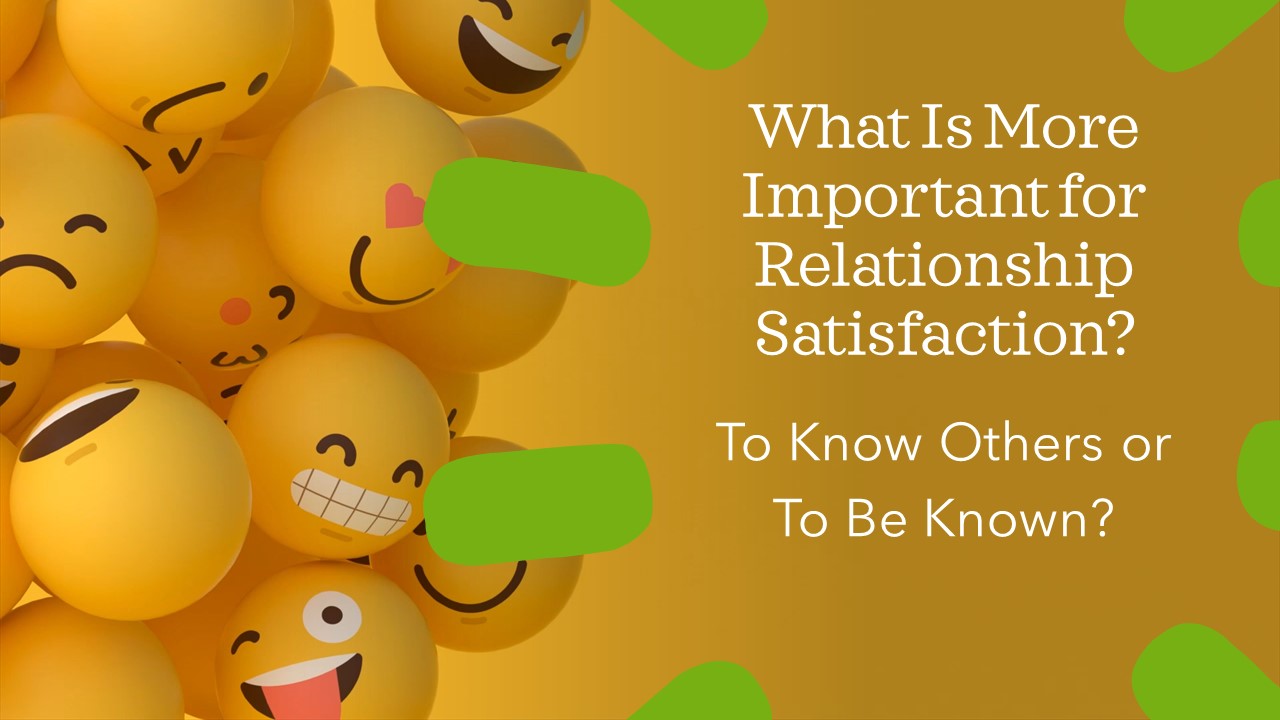Partners’ mutual understanding in a relationship is very important for relationship satisfaction in romantic and companionate relationships, as well as with friends, family members, neighbors, coworkers, and casual acquaintances.
What Is More Important: “To Know Your Partner” or “To Be Known”?
A series of experimental studies conducted by Juliana Schroeder and Ayelet Fishbach showed that the most important thing is that people are more satisfied when they feel like “they are known,” rather than when they feel like “they know the other person.”
“People want to be known, so they’re looking for partners who will know them and support them. But because other people also want to be known, they end up writing these not-super-appealing profiles when trying to attract partners.”
Juliana Schroeder said.
In their recent paper “Feeling Known Predicts Relationship Satisfaction,” Juliana Schroeder, Professor of Management Philosophy & Values at Berkeley Haas, and Ayelet Fishbach, Professor of Behavioral Science and Marketing at the University of Chicago Booth School of Business, contend that this phenomenon affects all types of our interpersonal relationships, including those with friends, romantic partners, neighbors, family members, coworkers, and casual acquaintances.
“Of course, people say they want to know their relationship partner and support their partner. But that’s not actually the thing that makes them happiest in their relationships. People feel happier in relationships where they feel like they are being supported—and for that, they have to be known.”
Juliana Schroeder said.
Here’s What Really Leads to Relationship Satisfaction
In their experimental studies, researchers first asked participants to rate how well they thought they knew a family member, partner, or friend compared to how well they thought they were known. Then, researchers asked participants to rate their relationship satisfaction on a scale of 1 to 7. It’s interesting to note that people frequently believed they knew the other person better than they did.
Researchers called this effect the illusion of asymmetric insight.
“People think they are unique and special and have a lot of complexity to them, so other people just don’t know their true self. Whereas once they know one thing about the other person, they’re like ‘I know you. Done. “
Schroeder says.
People value relationships more when they feel that someone truly knows them, maybe because it happens so rarely. The results of that study showed that
“In fact, the degree to which they knew the other person mattered less in how they felt about the relationship compared to the degree to which they felt they were known, regardless of how they felt about the overall quality of the relationship.”
Schroeder says.
In another study, the researchers gave participants one of two scenarios in which they encountered an acquaintance at a party who either forgot their name or whose name they forgot. Participants reacted differently to the two scenarios. Schroeder commented on this:
“If you forget their name, it’s not great for the relationship, but if they forget your name, it’s much worse — the relationship is over,”
Schroeder says.
